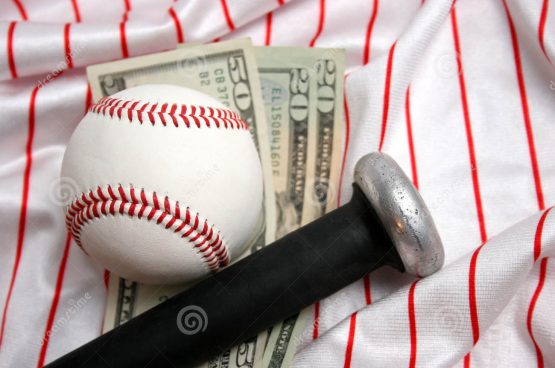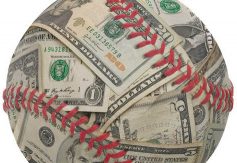If the “mercy rule” could be applied to the current labor negotiations between Major League Baseball and the Major League Baseball Players Association (MLBPA), the baseball owners would be declared the winners and the game would be called.
On account of idiocy.

Apparently the union’s overriding argument is that the new 2022-2026 CBA should somehow make up for the poor job their negotiators did in the previous two CBAs, and that everyone should be deliriously happily with that.
But as John Wayne put it in the film “Big Jake”: “Not hardly.”
When you’re sitting at the poker table and everyone knows you have a losing hand, doubling down on bets is usually not the recommended play. But the players’ union came into their current CBA talks with MLB waving their arms and talking smack by making a series of unrealistic demands that (surprise!) weren’t remotely taken seriously by MLB.
So while the MLBPA wasted months posturing tough, the owners’ negotiators have deftly boxed the union in on all sides as that “start of the regular season” clock is ticking louder and louder.
When the 2022 CBA is signed, and it will be soon, it will be fascinating to see how the Players Association will try to sell the new contract as a “win” to their players. The union’s PR people will pretend to do a happy dance as the ink is drying, but it will be the owners who are opening bottles of Crystal in celebration. Again.
Here’s how the sequence of events played out.
On November 30, 2021 (the day before the current CBA was set to expire), the MLBPA made its initial broad economic proposal to MLB. The next day, on December 1st, the two sides met for less than 10 minutes, which is all it took for MLB to reject much of the proposal and for the union to reject their counter. Later that day baseball owners voted unanimously to enact a lockout.
Which took the biggest labor hammer away from the players’ union: going on strike.
And then last week, MLB stated that if an agreement isn’t in place by Monday February 28th, regular season games would start to be cancelled. Because Baseball Commissioner Rob Manfred insists that at least four weeks of Spring Training are needed before the season can start, and Opening Day is March 31st.

For example, players making $20 million a season would lose $125,000 for each game not played; players making $30 million a season stand to lose $185,000 per lost game; and players making $40 million would lose $247,000 a game.
Which is actual, real money.
What cancelled games will cost the owners isn’t perfectly clear. Last season MLB made $9.9 billion, but only 29% of that ($2.8b) comes from gate receipts (tickets). The big revenue streams for team owners are national and local television and radio contracts, and licensing and merchandising, which accounts for the other $7.1 billion (according to Forbes.com). The owners have a lock-grip on the game’s financial bounty and they apparently have no intention of equitably sharing that bounty with the players.
Those media contracts, sometimes signed years previously, are guaranteed for the first 24 games. Even if regular season games are cancelled, the checks keep coming in to team owners, as do licensing agreement and merchandising revenues.
As far as local TV and radio media, most MLB teams own all or part of their local coverage, so that’s already money going from their left hand to their right hand.
It is unfortunate that the players’ union didn’t do their homework in the previous two Collective Bargaining Agreements. They ignored the increasing effect analytics was having on the game; they looked at addressing player micro issues instead of understanding the global future of baseball; and they completely misunderstood the emerging flipflop in relative value of veteran players versus talented young prospects.
Expecting that Major League Baseball could be cowed into agreeing to correct all of the union’s past mistakes in a single contract negotiation is yet another in an increasingly long list of misjudgments by the MLBPA.
Add The Sports Daily to your Google News Feed!







